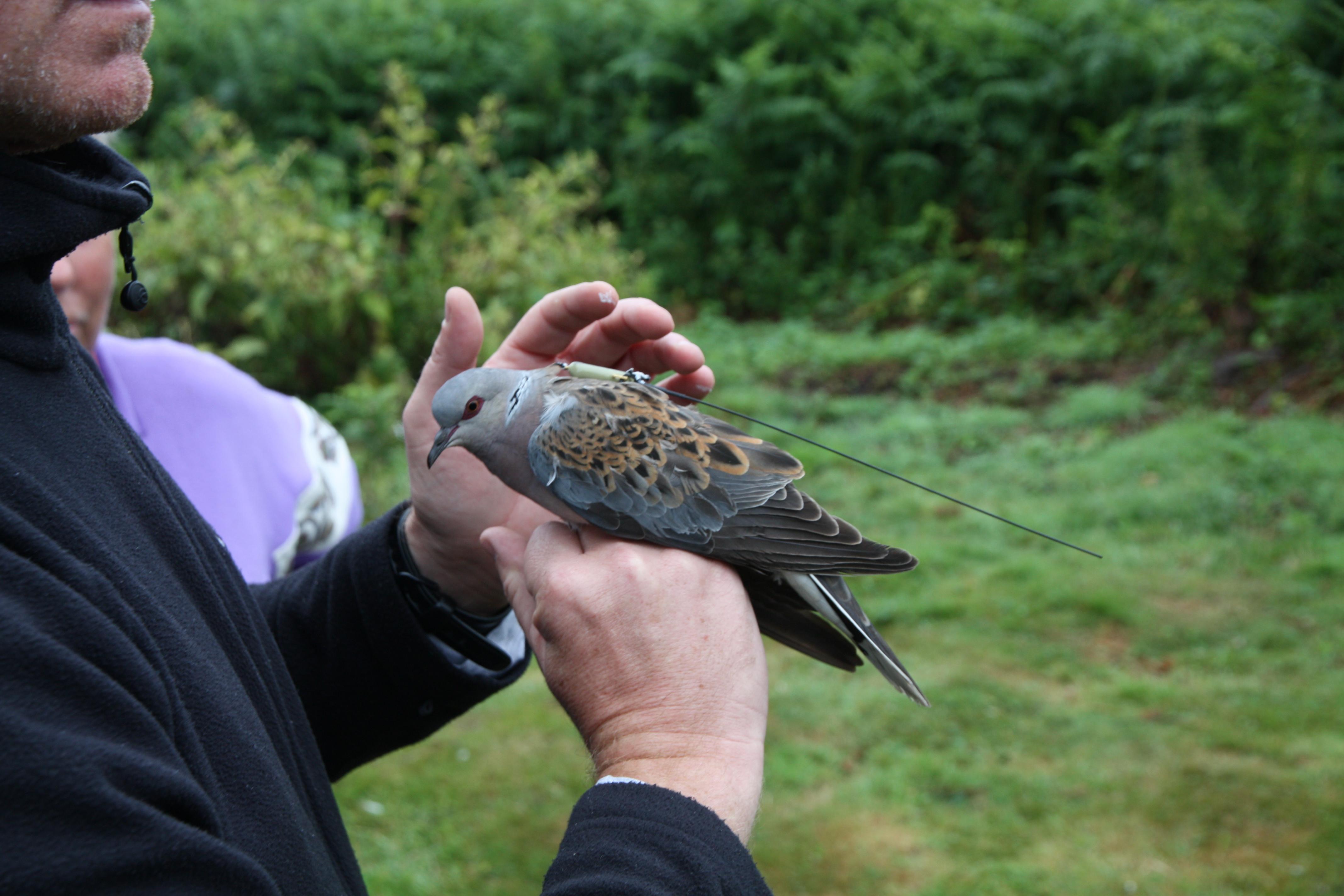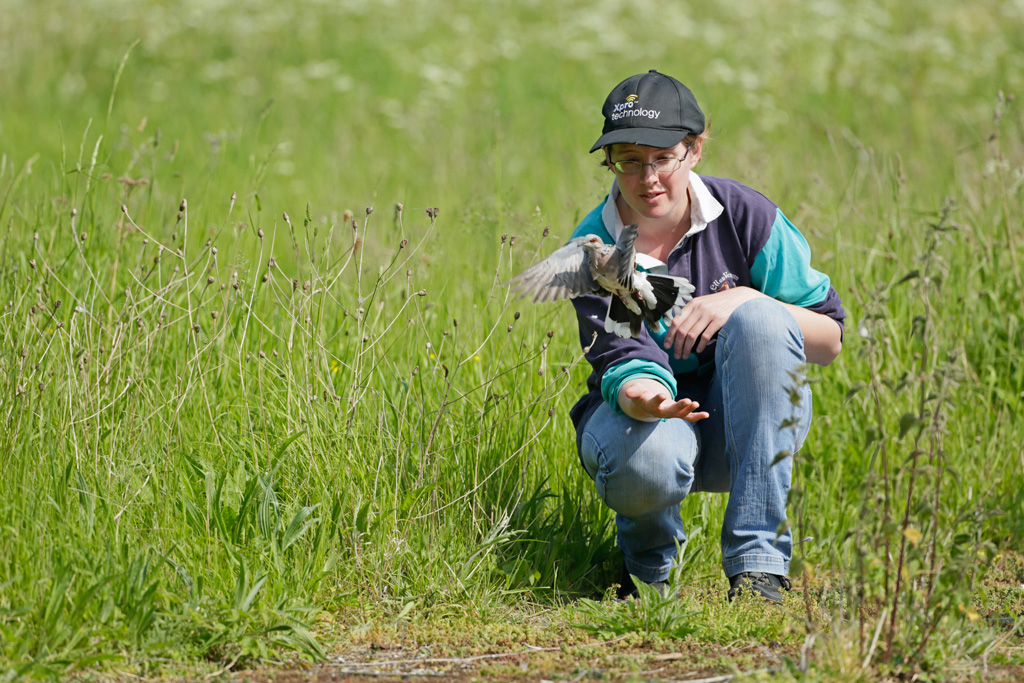In a UK science first the RSPB reveal UK breeding turtle dove migration route.
The migration route of a UK breeding turtle dove has, for the first time, been revealed by the RSPB today – providing valuable data in the conservation fight to help save the species from UK extinction.
Last August, the RSPB fitted a small, light-weight satellite tag to a turtle dove from Suffolk before it embarked on its mammoth migration journey. In a UK science first, the RSPB was able to track Titan, the tagged turtle dove, on his 5600km migration route from Suffolk to Mali, and back again, all in real time.

The turtle dove population has plummeted 96 per cent since 1970, making it the UK’s fastest declining migrant bird. This decline is so dramatic that the population is halving in number every six years; should it continue at this rate the species may be lost as a breeding bird in the UK within the next couple of decades.
Flying mostly under the cover of darkness, Titan flew across epic landscapes such as the Atlas Mountains, Sahara Desert and the Gulf of Cadiz. The satellite tag also uncovered that he travelled around 500-700km per night flying at a maximum speed of 60km per hour.
Dr John Mallord, RSPB Senior Conservation Scientist, said: “This is the first time that we have ever been able to track a UK-breeding turtle dove to its African wintering grounds. Previously we largely relied on ringing the birds, which didn’t give us half the amount of data Titan’s tag has. On top of his wintering grounds, we also have his migration route, where he stopped to rest and refuel and how long he spent in different places.
“Our aim now is to build on this new information, which will be used to help us to target our conservation efforts far more effectively on precisely those areas the birds are using when they leave the UK.”
Titan’s outbound journey to Africa, where he wintered for six months, took around a month to complete. On his return the avian jet-setter spent two weeks making his way through France, initially following the Atlantic coast, before leaving from Dunkirk and touching down in Suffolk. The latest satellite reading shows that Titan has returned to the same area he was first found and tagged in Suffolk.
RSPB scientists and their partners in Operation Turtle Dove and BirdLife hope to explore the key habitats, land use and food resources throughout the migration route in order to understand the reasons behind the alarming decline. The research will help plan and implement conservation actions on a local and international scale to help save turtle doves from UK extinction.
John continued: “This winter we will be returning to Senegal, an important wintering area for turtle doves, and a staging area for Titan on his way to Mali, to explore the reasons why they might be declining at such an alarming rate. There are many factors on the wintering grounds that could play a part in the alarming decline of turtle doves such as; a lack of reliable water sources, scarce food resources and limited suitable roosting sites. We plan to investigate all possible reasons.
“Historically, hundreds of thousands of turtle doves have wintered in Senegal, although there are suggestions that these numbers are lower nowadays, therefore it is vital that we focus our conservation efforts on wintering sites such as these to get a better understanding of the reason why they are declining and eventually put measures in place to help a recovery.”
For more information on Titan’s journey and how the RSPB and Operation Turtle Dove partners are helping to stop turtle dove declines visit: rspb.org.uk/titan









